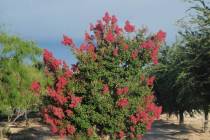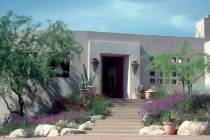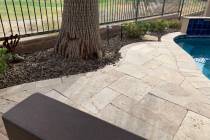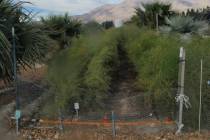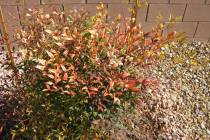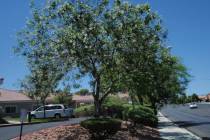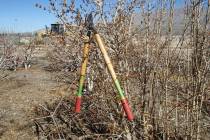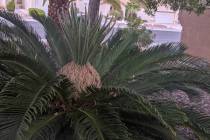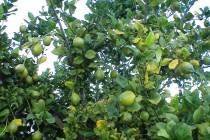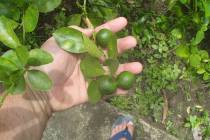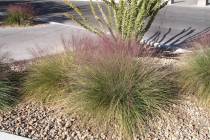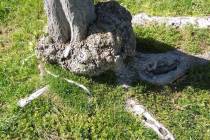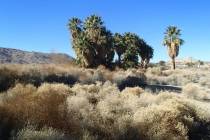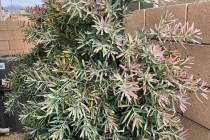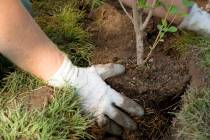Be careful when buying a soil moisture sensor. Sometimes they don’t always work.
Bob Morris
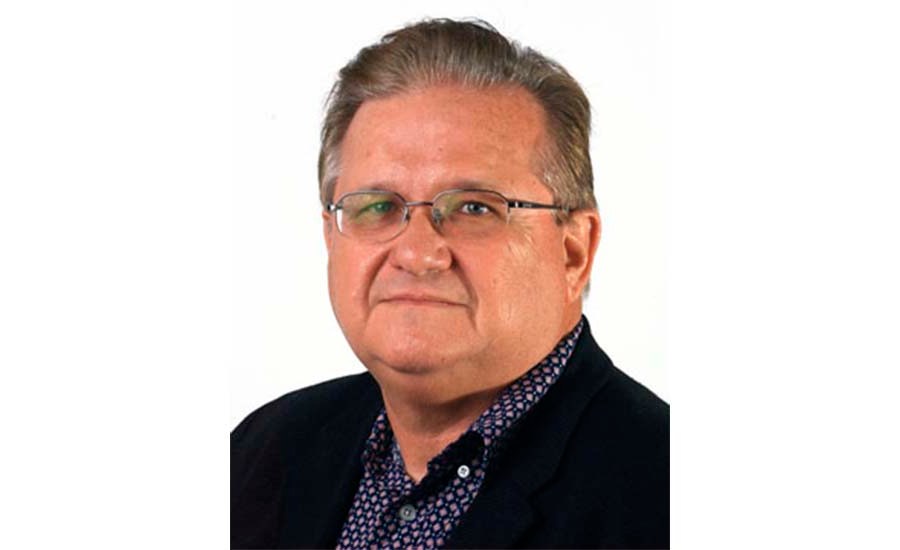
Bob Morris is a horticulture expert and professor emeritus of the University of Nevada, Las Vegas. Visit his blog at xtremehorticulture.blogspot.com.
A major key when converting to lower water use is to use as few plants of a larger size as possible. The fewer plants you use and still accomplish your goals, the better.
Some composts are rich and full of nutrients. Other times they are not so rich, and the addition of a fertilizer might be needed.
There is some discussion in academic circles whether crops grown in vertical farms aimed at feeding the world should be the higher-value horticultural crops or staple crops like multiple crops of wheat but with 70- to 80-day turnovers.
The trick to applying chemicals like copper, boron and chlorides is to do it far enough from your raised bed so that the roots from these vegetables won’t be harmed.
Nonfunctional lawns aren’t used for anything except beauty or aesthetics in a landscape. The use of grass lawns speaks to a lack of creativity and underappreciation of where we live.
The best time to plant winter-hardy trees and shrubs is during the fall, from around the end of September through mid-November.
The cycad, aka sago palm, is considered an ancient representative of its kind and has changed very little over the millennia. It is, like pine trees, a true gymnosperms.
Lemons usually don’t ripen until about December. Ripening means the sugar content increases as they reach maturity. December and January are the usual times we see citrus damaged by vermin.
For the most part, limes are harvested green. When limes are harvested too late, they are yellowish, pithy and no longer juicy and light in weight.
Kurapia has worked well in covering highway and freeway shoulders, rooftops, public utility areas, commercial properties and solar farm landscapes. But not much is known how it performs in a desert climate.
When plants are at their healthiest, strong and most resilient, they can better resist the high temperatures and, to a lesser degree, even the low temperatures that surround them.
Probably the easiest palm to grow in our area that can be started from seed is called the California or desert fan palm.
Traditional yew pine is considered a tough mesic evergreen tree but is not a desert plant. It can handle our hot summers if it gets afternoon shade and is not surrounded by surface rock.
Take this quiz and see how you stack up against other desert gardeners.








